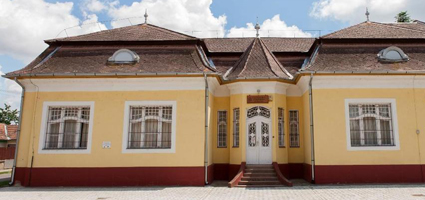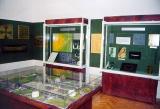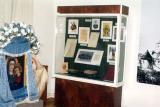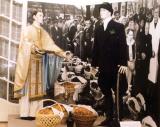2024. December 30. Monday
Local Historical Collection - Hajdúdorog
 |
Address: 4087, Hajdúdorog Jaczkovics út 5.
Phone number: (30) 237-7360
E-mail: hdmuvhaz@gmail.com
Opening hours: On prior notice: beyond the opening hours as well
|
The Region History Collection of Hajdúdorog is found nearby the Orthodox Catholic Cathedral, in a house built at the biginning of the 20th century. Its gate was opened before the visitors on 18th August 2000. The region history collection aims to offer interesting programmes for the visitors, and - through the collection of items and effective backround works - become a stable cultural institute.



